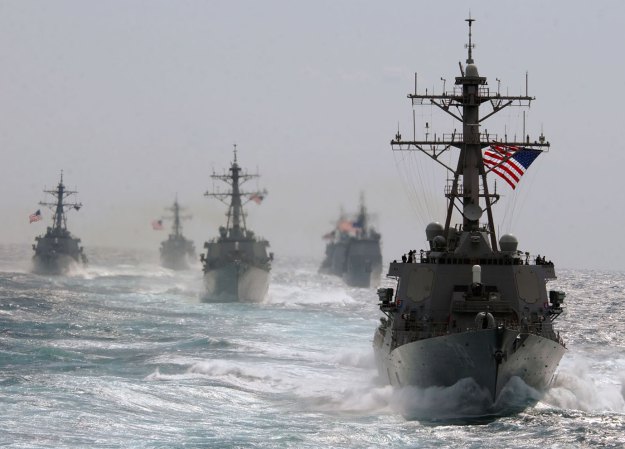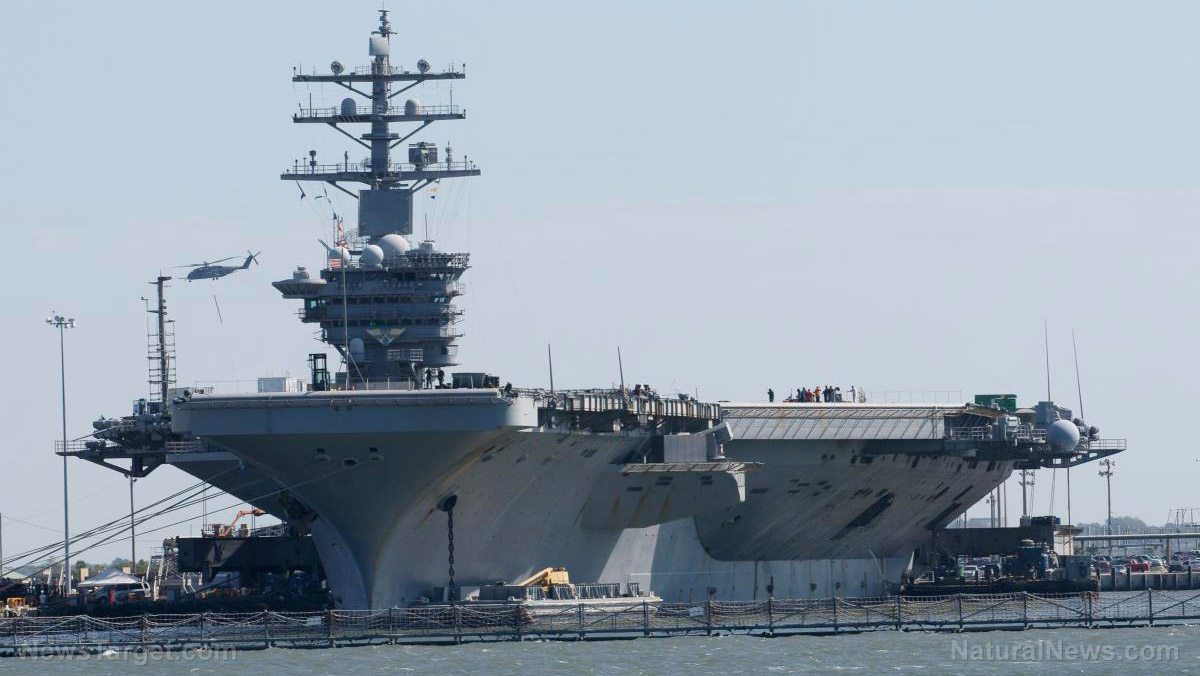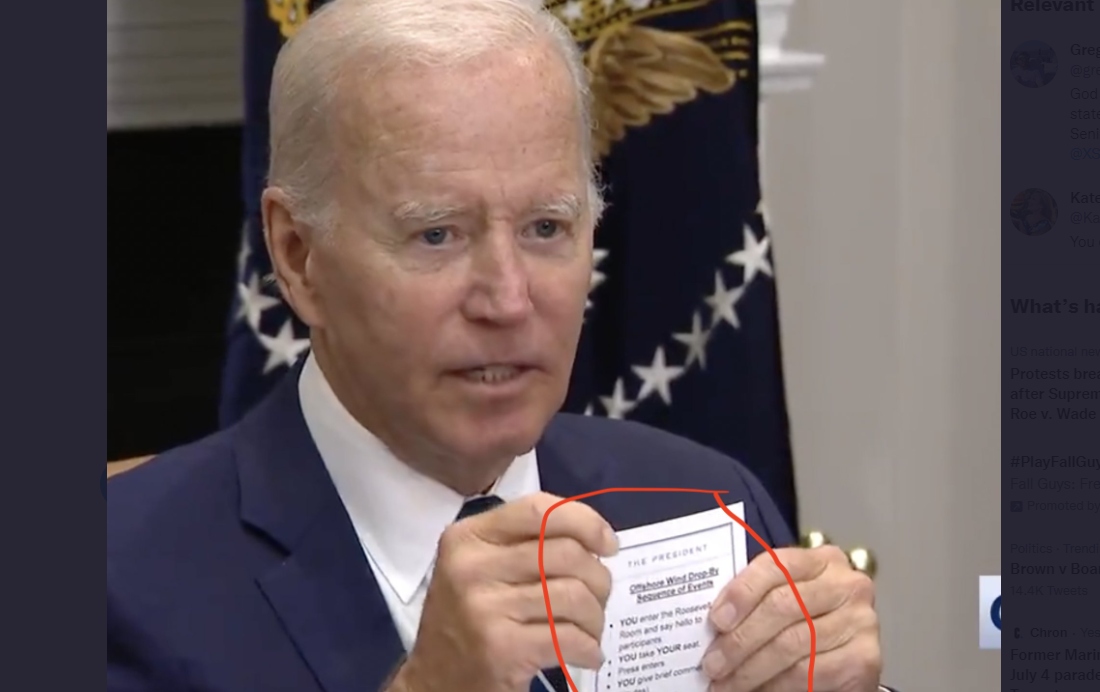America no longer has the capability or credibility to embark on an amphibious war with the Yemeni Houthis
02/08/2024 / By Belle Carter

For a retired Marine Corps colonel who served as a special advisor to the deputy secretary of defense, the United States military could not launch, let alone win an “ambitious” war with the Houthis of Yemen. Gary Anderson, who also spent a total of 30 months as a civilian advisor in Iraq and Afghanistan, also said that the country would not be victorious if it went against China either. He further cited Marine Corps Lieutenant General Karsten Heckl mirroring the same sentiment. “The Navy no longer has that capability,” the general said recently.
He said that despite the fact the past and present presidents of the United States seem to have resorted to the “amphibious warfare” approach and it seemed like a “bloodless way to wage a war” on the part of the U.S., “striking missile and killer drone launching sites, as well as terrorist headquarters with missiles and drones, has increasingly become ineffective already.” “It would take the equivalent of a Marine Corps division to conduct a large-scale raid in southwestern Yemen capable of cleansing the area of the missile and drone launch sites that have made the Bab-el-Mandeb a shooting gallery,” Anderson pointed out, adding that an operation like this would need two Marine Expeditionary Brigades’ worth of military transport ships.
What Heckl did not say was that the former Commandant of the Marine Corps General David Berger released the Navy from that long-standing two Marine Expeditionary Brigade requirement in 2019, Anderson noted. The aircraft carrier and submarine admirals who compete to run the Navy happily complied. By late in his tenure, even Berger was forced to admit that the Navy/Marine Corps team could not even do an evacuation mission in Sudan or a humanitarian mission in Turkey due to lack of adequate shipping in those vicinities.
Anderson further said that removing the Houthi threat of missiles and drones would require ground assault troops to “locate the underground sanctuaries that allow the launchers to be rolled out, fired quickly, and re-hidden just as quickly” and a massive amphibious raid “to methodically find and eliminate these facilities” would mean at least two months of sustained combat by a division-sized force. He further emphasized that the Marine Corps no longer has assault bridging, tanks or volumes of artillery that troops would need to maintain such a force. “It has taken a few years for the chickens to come home to roost, but the bottom line is that the U.S. no longer has the capability or credibility to conduct large-scale amphibious operations,” he said.
Meanwhile, the Yemeni Houthis have been attacking Western ships and many of the vessels have been forced to reroute from the Red Sea and Suez Canal, causing freight and supply prices in the U.S. and Europe to surge. (Related: Houthis step up offensive operations with new drone attacks on U.S.-owned commercial ships.)
White House: U.S. to launch more strikes at Iran-backed groups
Despite experts’ analysis that the United States can no longer carry out a war with the Houthis, the White House recently announced that there are more strikes to come targeting all the Iran-backed militant groups in the Middle East, after the Western forces hit Tehran-aligned factions in Iraq, Syria and Yemen over the past few days. The United States and Britain unleashed attacks against 36 Houthi targets in Yemen, a day after the U.S. military hit the Iran-supported groups in Iraq and Syria in retaliation for a deadly attack on U.S. troops in Jordan.
“We intend to take additional strikes, and additional action, to continue to send a clear message that the United States will respond when our forces are attacked, when our people are killed,” National Security Adviser Jake Sullivan told NBC’s “Meet the Press” program on Sunday. U.K. Defense Secretary Grant Shapps also said that the U.K. “will not hesitate” to repeat the latest joint strikes. Amid all the chaos, U.S. Secretary of State Antony Blinken has landed in Saudi Arabia on his fifth trip to the region since the conflict started on October 7 last year.
Meanwhile, former U.S. ambassador to the United Nations John Bolton, said that he thinks that the U.S. strategy is not inflicting any real cost on Iran. “The real problem is Iran,” he told BBC “and its ‘ring of fire’ strategy around Israel and the Gulf Arab countries designed to advance Iranian influence.” He added that Iran has suffered no damage for the work of its terrorist proxies and that Iran won’t be deterred. “The American strategy looks weak,” he commented. “Is it better to deal with the Iranian problem now, or do you think their behavior will become better after they get nuclear weapons?” Referring to the negotiations for a ceasefire in Gaza, and the release of Israeli hostages, Bolton also said he doesn’t want to see a permanent ceasefire as that would allow Hamas to regroup.
Check out WWIII.news for more stories related to the ongoing escalation in the Middle East region and the imminent involvement of the United States.
Sources for this article include:
Submit a correction >>
Tagged Under:
amphibious operations, Bab-el-Mandeb, big government, chaos, Collapse, combat capabilities, Drone Strikes, Gary Anderson, Hamas, Hezbollah, Houthi, Karsten Heckl, Middle East, military technology, national security, Red Sea, terrorism, truth, US Navy, violence, weapons technology, World War III, Yemen
This article may contain statements that reflect the opinion of the author
RECENT NEWS & ARTICLES
COPYRIGHT © 2017 PENSIONS NEWS




















